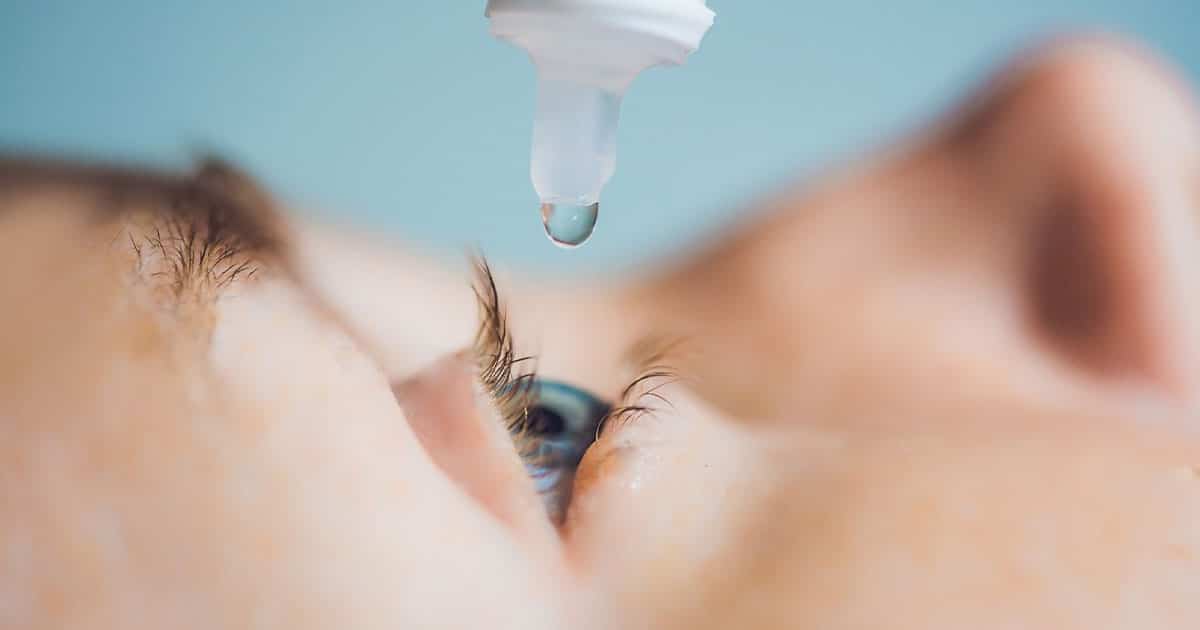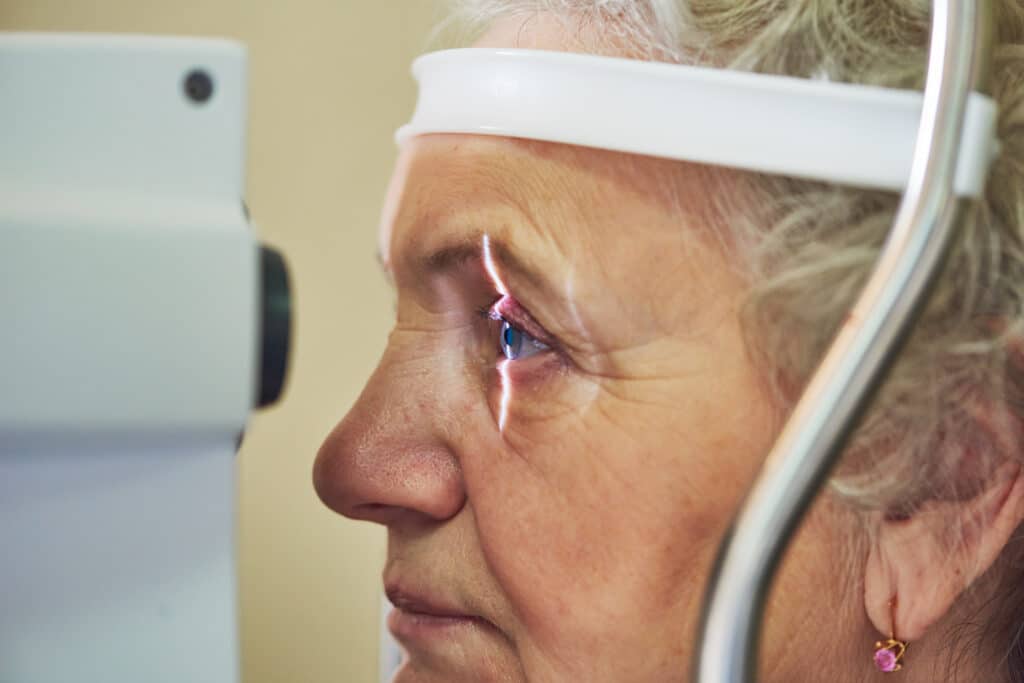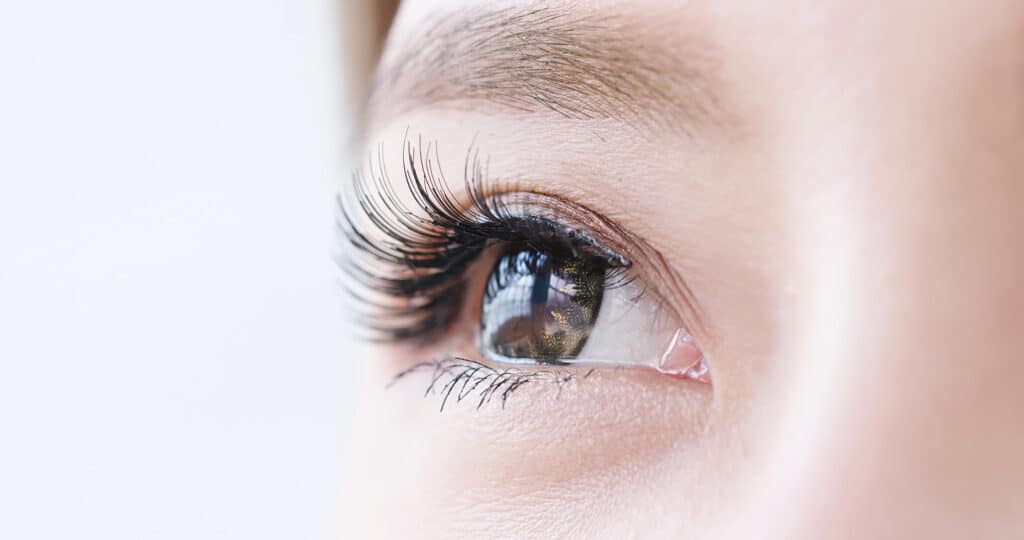Remedies for Dry Eyes: Treatment and Prevention
August 11, 2021
What Causes Dry Eyes?
Most people have experienced dry eyes at some point in their lives, and it is a fairly common issue affecting many individuals regardless of their eye health.
Symptoms like redness, eye irritation, and discharge can frequently be attributed to eye dryness.
This condition occurs when your eyes do not produce enough tears or when the tears produced evaporate and do not properly hydrate the eye. It can leave you feeling as though you have sand or debris in your eye with a sometimes burning or stinging sensation.
When successfully and sufficiently produced by your tear glands, natural tears hydrate the eye, keeping the surface moist and smooth and washing away debris, dust, sand, and other unwanted foreign objects. Healthy eyes are constantly producing tears in order to serve these and other ocular functions.

Certain diseases, prescription and over-the-counter medications, environmental factors, and aging are just a few potential causes of eye dryness.
Depending on the frequency and severity of symptoms, you may be able to treat and alleviate eye dryness with over-the-counter medications or home remedies. Many individuals with dry eyes are able to alleviate symptoms with the help of these therapies.
As with all medical concerns, please consult your eye doctor in order to best understand your eye health and optimal treatment options.
Remedies for Dry Eyes
Warm Compresses
Eye dryness can be caused by eye inflammation and flaky, crusty eyelids, commonly due to clogging of the glands that secrete oil essential to tear production. When these oil glands are clogged or inflamed, tear production can be drastically impacted.
To reduce inflammation and encourage oil glands to clear up, warm compresses may be used. Take a clean washcloth and wet it with warm water, wring it out, and place it gently on your closed eye. You can tenderly massage your eyelid when applying a warm compress to encourage movement within your glands, increase circulation, and improve tear production.
Request a Consultation
We’d love to help you get all the information you need in order to make the best choice for your eyes. Request a consultation today! Our staff is available and happy to answer your every question.
Eye Protection
Avoid environmental risk factors such as windy or dry weather when possible, as these conditions can cause tears to evaporate at a faster rate.
If factors like wind are unavoidable, wraparound sunglasses should be worn to minimize exposure and add a protective layer to your eyes.
Artificial Tears
When used regularly, artificial tears and lubricating eye drops provide relief from symptoms for many individuals struggling with eye dryness.
Lubricating eye drops (not Visine!) supplement the tears naturally produced by your eyes with artificial ones, providing increased moisture and eye protection. These are generally sufficient for relieving eye dryness caused by living in a dry environment and eye fatigue.
Like most over-the-counter medications, there are many different kinds of drops, and you should take the differences into consideration when choosing what works best for you.
Nonprescription eye treatments come in the form of drops and ointments. Ointments or gels are typically thicker, coating the surface of the eye and providing lasting hydration. This increased moisture can cause blurred vision, so eye ointments are generally recommended for nighttime use whereas regular drops can be used at any time throughout the day.
Artificial tears can also be advertised as reducing redness. Prolonged use of this type of eye drop can cause irritation, and it is best to avoid these when possible.

Hydration
Be sure to drink plenty of water in order to maintain healthy levels of moisture in your eyes. Tears are made up of oil, water, and mucus, and your eyes may have difficulty keeping up with tear production if you are lacking in one of the main components: water.
It is difficult for your eyes to stay hydrated when you are not! Drink at least 8-10 cups a day, and supplement your diet with water-rich foods if you are having difficulty meeting that goal.
Avoid Smoking
Cigarette smoke is a contaminant that commonly causes dry eyes, and avoiding smoking and exposure to cigarette smoke can alleviate dry eyes.
Smoke is a known eye irritant and even secondhand smoke can cause or exacerbate symptoms of eye dryness.
Utilize Humidifiers and Air Filters
Dry, stagnant indoor air is a common eye irritant, and using a humidifier to increase air moisture can improve these symptoms. Factors like heater use in the winter can decrease moisture in the air, causing dry eyes.
Air filters can also remove or reduce particulates circulating within your home and prevent dry eyes.
Omega-3 Fatty Acids
Omega-3 fatty acids are a nutrient that has been noted to decrease symptoms of eye dryness. They accomplish this by reducing eye inflammation, increasing tear production, and improving the quality of tears.
They are commonly found in naturally fatty fish and can also be added supplementally to your diet via over-the-counter vitamins to alleviate symptoms of dry eyes.
Regulate Blood Sugar Levels
Elevated blood sugars can lead to ocular nerve damage due to restricted blood flow, and this is therefore particularly important for diabetics.
Damage to eye functioning often impacts the tear glands, which can cause dry eyes.
Special Contact Lenses
People who regularly use contact lenses to correct their vision may experience dry eyes due to prolonged or constant use. Ask your doctor about special contact lenses that can provide better hydration to your eyes.
One example of these is known as scleral lenses, which are gas permeable lenses custom-fitted to your eyes. They rest on the white parts of your eyes called the sclera (hence the name), do not come into contact with your corneas, and are larger than traditional contact lenses.
Minimize Screen Time
Prolonged exposure to television, phone, or computer screens often leads to reduced blinking while staring at the screen, causing dry eyes.
Many people have work obligations and responsibilities that require them to constantly be looking at a screen, making it an unavoidable cause of eye dryness. In these cases, you can minimize and mitigate symptoms by blinking often, taking regular breaks, and adjusting your monitors and lighting to reduce glare.
Talk to Your Doctor
There are many solutions for alleviating symptoms of eye dryness, ranging from natural remedies at home to over-the-counter and prescription medications.
Many people are able to completely relieve symptoms of dry eyes or greatly reduce eye redness, irritation, and other associated eye issues through regular use of at-home remedies and over-the-counter treatment options.
Talk to your doctor about your dry eye symptoms, and be sure to inform them of any medications, pre-existing health conditions, or lifestyle habits that may potentially exacerbate eye dryness.If symptoms continue to worsen, make an appointment with an eye specialist today.


